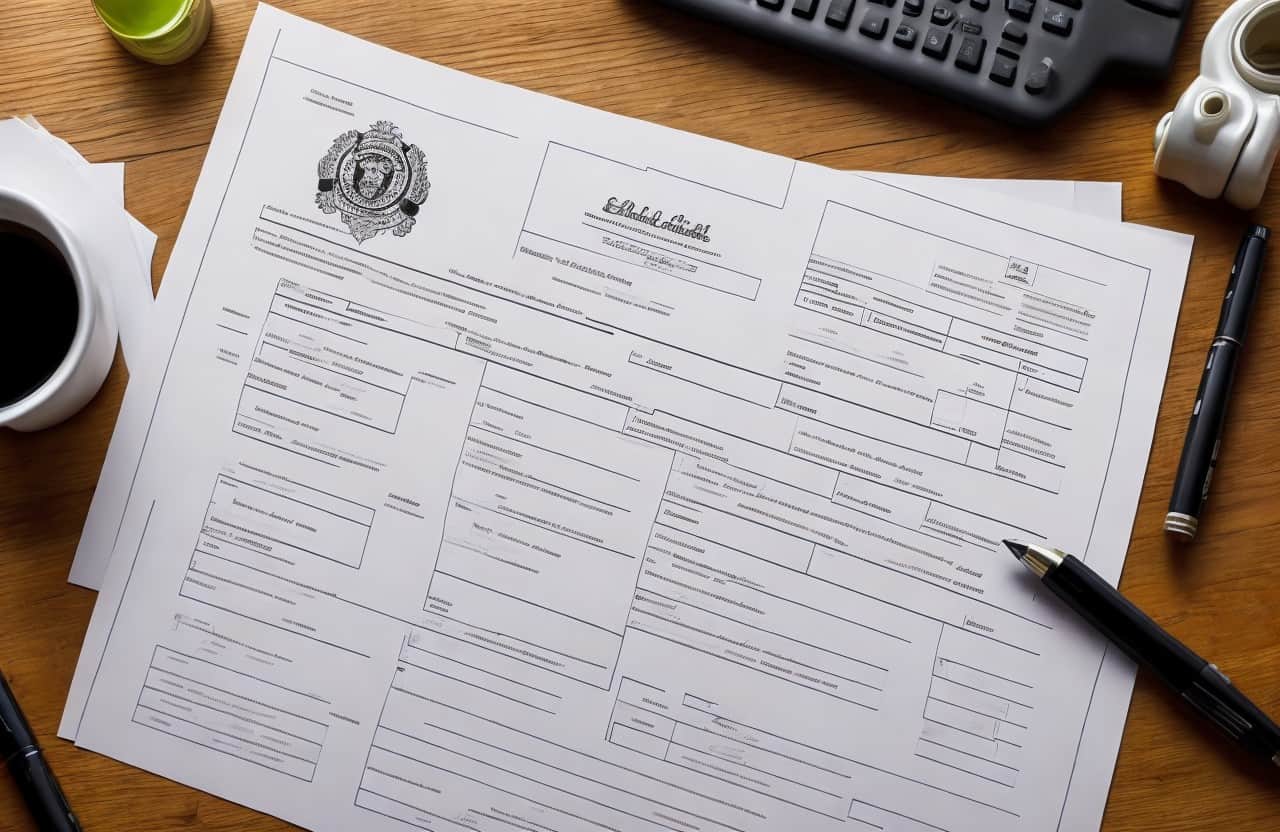Do You Need A Business License To Sell On Etsy?
Selling products online is a great way to make money, but do you need a business license to sell on Etsy? The answer may surprise you! Whether you’re just getting started in the e-commerce world or have been in it for years, understanding the legal requirements of selling on Etsy is essential. In this article, we’ll explore the answers to this question and how to obtain a business license if necessary.
Are you an artist or creative looking for another way to make money? If so, Etsy might be just what you’re looking for. After all, who wouldn’t want to turn their hobbies into income streams? But before you get too far ahead of yourself and start listing your products on Etsy, there’s one important thing you should know: do you need a business license in order to sell on the platform?
The answer depends largely on where your business is located and what type of product or service you offer. In some areas, selling handmade goods online requires a business license. In others, it doesn’t. Read on to find out more about whether or not you need a business license when selling on Etsy.
Definition Of Business Licensing
Business licensing is a legal requirement for businesses that sell products or services in most parts of the world. It involves registering with local, state or federal authorities and paying a fee in order to obtain the necessary permit to operate legally. The type of license required depends on the nature of the business and its location, as well as other considerations such as zoning laws.
In general, obtaining a business license requires submitting an application, providing proof that all relevant requirements have been met (such as taxes) and paying a fee. After approval, the business must abide by all regulations set out by their local government. These regulations may include limits on operating hours, restrictions on advertising methods, health and safety standards and other rules designed to protect consumers.
Though it can seem like a daunting task to obtain a business license, it is an important step in making sure that your company complies with all applicable laws and regulations. This helps ensure that customers are receiving legitimate goods and services from qualified providers. Moreover, having a valid business license can be beneficial for tax purposes and protection from liability claims.
Having a valid business license is essential for any company that wants to do business legally and ethically. Obtaining one should always be done with care and consideration as it will affect the future of your venture.
Overview Of E-Commerce Platforms
Now that we have discussed what business licensing is, let’s look at the various e-commerce platforms available for selling products. E-commerce platforms are online stores that allow businesses and individuals to sell products and services directly to customers. The most popular e-commerce platform is Amazon, which allows businesses of all sizes to sell their items on a large scale. Etsy is another popular e-commerce platform, primarily used by small businesses and individuals to create handmade or vintage items.
Etsy doesn’t require a business license for sellers in most cases, although some jurisdictions may have specific regulations regarding the sale of certain types of items. For example, if you’re selling food or alcohol on Etsy, you’ll need to obtain the necessary permits and licenses from your local government before you can start selling. Additionally, if you plan on selling items that require a professional license such as medical equipment or software, you’ll need to obtain the appropriate licenses in order to do so legally.
When it comes to taxes, both Amazon and Etsy provide tools to help sellers calculate sales tax owed on their transactions. However, Amazon requires its sellers to register with each state they do business in while Etsy only requires them to register where they are located. It’s important for both Amazon and Etsy sellers to check with their local tax authorities for specific regulations regarding sales taxes in their area before listing any products for sale.
No matter which platform you decide to use for your e-commerce venture, it’s essential that you understand the laws and regulations related to operating an online store in your jurisdiction. Researching these laws ahead of time will help ensure that your business is properly licensed and compliant with all applicable regulations. This will ultimately save you time and money down the line as well as protect your business from any potential legal issues associated with not having the proper licenses or permits in place.
Relevant State And Local Regulations
It is important to understand the relevant state and local regulations that may apply when selling on Etsy. Depending on where you live, you may be required to obtain a business license or other permits in order to sell on the platform. In some cases, there may also be zoning regulations that need to be followed.
The best way to determine what kind of licensing or permit requirements apply in your area is to contact your local government. You should also check with the Small Business Administration or other state-level agencies for detailed information about any relevant laws and regulations.
You should also consider whether collecting taxes from buyers is necessary for your business. Many Etsy sellers are not required to collect sales taxes from their customers; however, this can vary depending on the location of both the seller and buyer. If you are unsure about the tax requirements for your business, it is best to consult a tax professional or seek advice from a qualified accountant.
It’s essential to make sure you have done your due diligence and understand any applicable laws before starting an Etsy business. Failing to abide by these regulations could lead to significant fines and penalties, so it’s important that you do all the research necessary before getting started.
Types Of Businesses That Require Licensing
Moving on from the relevant state and local regulations, it’s important to know what type of businesses require a license. Generally speaking, any business that sells goods or services needs to obtain a business license before they can open their doors. Here are four types of businesses that need to be licensed:
- Retail stores
- Restaurants
- Home-based businesses
- Online stores, such as Etsy
Retail stores, including those with both physical and online locations, need to obtain a business license in order to sell products legally. This includes clothing stores, toy stores, grocery stores, and other establishments that sell physical items directly to customers. Similarly, restaurants must get licenses in order to serve food or alcohol in their establishments.
Home-based businesses also need a business license because they are engaging in commerce from their residence. This includes freelancers who offer services such as web design or copywriting as well as entrepreneurs selling handmade products like jewelry or soap. Finally, online stores like Etsy will also need to obtain a business license if they want to operate legally within their jurisdiction.
In order for these types of businesses to remain compliant with local laws and regulations, they must make sure that they have obtained the proper licensing requirements before opening shop. Without the correct licensing paperwork completed, they may face steep fines or even closure down the line due to noncompliance with state laws.
Understanding The Etsy Platform
Etsy is an online marketplace that allows individuals to sell handmade and vintage items, art, supplies, and more. It’s a great way to start a business without having to worry about the cost of setting up a physical store or obtaining a business license. However, there are some important things you should know before selling on Etsy.
First, you’ll need to create an Etsy account. This is free and easy to do. Once your account is set up, you’ll be able to access all the tools needed for selling on the platform. You’ll also need to create product listings for each item that you want to sell. These listings will include descriptions of your products as well as photos of them so buyers can get an idea of what they’re buying.
In addition, it’s important to understand the payment options available on Etsy. The platform offers customers several payment methods such as PayPal and credit card payments. As a seller, you must make sure that your payment settings are correct in order for buyers to be able to purchase from you successfully.
Finally, it’s essential that you understand the terms and conditions of selling on Etsy so that you can ensure that your business operates smoothly and legally. Make sure that you read through these carefully before launching your business so that everything runs smoothly once it’s up and running.
Requirements For Selling On Etsy
Now that you understand the Etsy platform, it’s time to look at the requirements for selling on Etsy. To set up a shop and begin selling, there are certain steps you must take. The first being getting your business license.
| Requirement | Cost |
|---|---|
| Business License | $50 – $500+ |
| Listing Fees | 20 cents per listing |
| Payment Processing Fees | 3% + 25 cents per transaction |
| Advertising Fees | Optional & Variable |
| Shipping Costs & Supplies | Variable & Optional |
Depending on where you live, a business license may be necessary to open an Etsy shop. The cost of a business license varies by state and can range from $50-$500+. In addition to the fee associated with obtaining a business license, there are also listing fees and payment processing fees associated with selling on Etsy. When creating a new listing, there is a fee of 20 cents per item. Additionally, when customers make purchases through your shop, Etsy charges a 3% plus 25 cent fee in payment processing costs for each transaction completed through their system. There are also optional advertising fees depending on what type of ads you choose to run within the platform, as well as the cost of shipping supplies and materials for packaging items for shipping purposes.
Overall, these basic requirements are essential for setting up shop and running a successful business through Etsy. If all these components are taken into consideration before launching your store, then setting up shop should be fairly straightforward and you can start making sales quickly!
Liability And Insurance Concerns
When running an Etsy shop, it is important to consider liability and insurance concerns. While Etsy does provide some protection for its sellers, there may be other risks involved in selling on the platform. Therefore, it is important to understand the potential liabilities and insurance needs associated with running a business.
There are several potential liabilities to consider when selling on Etsy, such as copyright infringement or product liability. Copyright infringement occurs when someone sells products that contain copyrighted material without permission from the copyright holder. Product liability occurs when a seller’s products cause harm or injury to their customers. If either of these occur, the seller may be held liable for damages or legal action taken against them.
In addition to protecting themselves from potential liabilities, Etsy shop owners should also consider obtaining insurance coverage for their business. Insurance can protect a business from financial losses due to damage caused by accidents or theft, as well as legal costs if they are engaged in a lawsuit. Depending on the type of goods being sold through the shop and the location of where goods are shipped, different types of insurance may be required.
It is important for Etsy shop owners to research their local laws and regulations regarding business licensing and insurance requirements in order to ensure they are operating within compliance of applicable laws and regulations. Additionally, seeking professional advice from an accountant or lawyer can help ensure that all necessary steps have been taken in order to protect themselves from any potential liabilities or lawsuits that may arise from running an Etsy shop.
Potential Tax Implications
Moving on from liability and insurance concerns, potential tax implications for selling on Etsy must be considered. Tax laws vary from state to state and it is important for sellers to familiarize themselves with their local regulations. Here are some key points to consider:
- When you sell goods or services through Etsy, the company will not automatically withhold taxes for you.
- You should report all income related to your Etsy store on your annual tax return, regardless of whether you receive a 1099-K form or not.
- Etsy sellers may need to register with their local state tax agency in order to collect sales taxes on certain items and services they sell.
It is recommended that anyone considering selling through Etsy consults with a qualified tax professional who can advise them on the specific rules in their area. They can help answer questions about filing requirements, estimated taxes, deductions and other issues related to running an online business. Failing to comply with the applicable regulations can result in hefty penalties or even criminal prosecution in some cases so it’s best to make sure you have all your bases covered before getting started.
How To Obtain A Business License
Obtaining a business license is essential for any entrepreneur who wishes to sell their products on Etsy. Depending on the area, the process of getting a business license may vary. Generally, it involves filling out an application, submitting documents such as proof of identity and residence, and then paying a fee.
The first step in obtaining a business license is to determine which type of license is needed. Different types of licenses are usually required for different types of businesses. For example, selling food or alcohol requires a different type of license than selling clothing or crafts. It’s important to research the regulations in the local government and make sure that all requirements are met before applying for the license.
Once all requirements have been determined, applicants must fill out an application form with all necessary information such as name and address, type of business being conducted, and contact details. Along with this form, applicants will also need to provide documents such as proof of identity and residence as well as other documents that may be specific to the area in which they are doing business.
After all documentation has been submitted and the applicable fees have been paid, the applicant will receive their business license in the mail within a few weeks. This means they can start their business legally without worrying about breaking any laws or regulations.
Applying For A Sales Tax Permit
In order to sell on Etsy, you need to apply for a sales tax permit. This is a document issued by the state in which you will be doing business. It allows you to collect and remit sales taxes from customers. It is important to note that each state has its own rules and regulations for obtaining a sales tax permit.
The process for applying for a sales tax permit varies depending on the state. Generally speaking, you will need to fill out an application form and submit it along with any required documents or fees. Additionally, many states require businesses to register with their department of taxation. This can be done online or via mail, depending on the state.
Once your application has been approved, you will receive your sales tax permit. You are now able to collect and remit sales taxes from customers in accordance with the laws of your state. You should also keep track of any changes in local or state tax rates so that you can adjust your prices accordingly.
You are now ready to begin selling on Etsy! Make sure you understand all of the rules and regulations regarding taxes associated with online selling before getting started. Staying informed and compliant with all applicable laws is essential for success on Etsy.
Filing Annual Reports
After obtaining a sales tax permit, it’s important to stay on top of filing annual reports. This ensures that all taxes are paid correctly and in a timely manner. Filing annual reports can be done online, by mail, or in person.
| Type | Advantages | Disadvantages |
|---|---|---|
| Online | Fastest processing time <br>Easiest to access records later | Must be comfortable with computers <br>Technical issues may arise |
| Records easily kept and accessible <br>No technical issues | Slow processing time <br>Postage costs money | |
| In Person | Immediate processing<br> Face-to-face interaction with officials | Longer wait times <br>Can be inconvenient to travel to the office location |
As you can see, there are pros and cons of each option when it comes to filing annual reports. It is up to the individual seller to decide which method works best for them and their business. No matter which option is chosen, it’s important for sellers to adhere to applicable laws and regulations so that they remain compliant. Knowing when annual reports are due and making sure those deadlines are met will help keep businesses running smoothly.
Benefits Of Having A Business License
No matter how small your business is, having a valid business license may be beneficial. Here are four advantages of having a business license:
- Legitimacy: A business license shows that you are a legitimate, registered business owner and can give your customers confidence in the services you provide.
- Tax Benefits: Depending on the type of license you obtain, you may be eligible for certain tax deductions or credits that can help reduce your overall operating costs.
- Professionalism: Having a valid business license tells potential customers that you are serious about your work and that they can trust you to provide quality services.
- Access to Resources: Many local and state governments offer resources to businesses with valid licenses, such as access to grants or loan programs.
All in all, having a business license gives businesses credibility and access to resources that can help them succeed in the long run.
Challenges Of Not Having A License
Not having a business license can be challenging when selling on Etsy. Firstly, you may run into problems when it comes to filing taxes. Without a business license, you won’t have the same deductions and credits available to you as someone with a business license. You’ll also need to manually calculate your taxes each year or source a reliable accountant who can do this for you. Secondly, not having a business license means that your customers won’t be able to write off their purchases as a business expense. This could lead to reduced sales figures as some customers may opt for vendors with proper licenses in order to save money. Thirdly, if you’re unable to provide evidence of your legal status when requested by authorities at any point during your Etsy career, then your shop might be shut down without warning. Lastly, without a business license, you may miss out on valuable networking opportunities that come with being part of an official company structure. Local Chambers of Commerce and other professional organizations often offer discounts and other benefits to legally registered businesses which won’t be available if you’re operating without a license. Despite these potential challenges though, there are many successful Etsy vendors who do not have their own business license and successfully grow their online shops over time.
Alternatives To Obtaining A Business License
In general, a business license is not required to sell on Etsy. However, there are some alternatives available for sellers who would like to operate in a more legal and professional way.
One option is to register with the Internal Revenue Service (IRS) as a sole proprietor. This allows the seller to use their own name or a business name when filing taxes and also provides them with certain legal protections. The downside is that it can be costly and time-consuming to complete the necessary paperwork.
Table 1 | Alternatives to Obtaining a Business License | Advantages | Disadvantages | |:————–:|:————-:|:—————–:| | IRS registration | Legal protection | Costly/time consuming | | Local permits | Tax deductions | Difficult to secure | | Professional advice | Compliance with regulations | Expensive consultation fees |
Another alternative is to obtain local permits that are specific to the location of your Etsy shop. These can provide tax deductions and other benefits, but they can also be difficult to secure depending on where you live.
Finally, seeking professional advice from an accounting or legal specialist may be beneficial for those looking for more guidance when starting their Etsy business. Although this option can help ensure compliance with various regulations, it does come with expensive consultation fees.
Preparing Your Etsy Shop For Launch
Now that you’ve explored alternatives to obtaining a business license, it’s time to prepare your Etsy shop for launch. As an online marketplace, Etsy offers a variety of tools to help you set up and manage your business. Before opening your shop, it’s important to consider the type of products you will sell, how you will price them, and the look and feel of your shop.
First, make sure that the products you are selling are allowed on Etsy. The platform does not allow sellers to list items such as alcohol, weapons, animal parts or human remains. Additionally, all items must have been handmade or vintage in order to be listed on Etsy. This is important to keep in mind when considering what type of goods to offer in your shop.
Second, pricing is key for success on the platform. You should determine how much each product will cost based on factors such as labor costs and materials used. Additionally, research other shops similar to yours in order to get an idea of their pricing structure and create a competitive strategy for yourself.
Finally, take some time to consider the overall aesthetic of your shop. Etsy allows sellers to customize their profiles using HTML/CSS coding or by selecting from one of its templates. You can also add photos and descriptions that make it easier for customers to find what they’re looking for in your store. Once everything is set up properly, you’ll be ready to launch!
Frequently Asked Questions
What Type Of Insurance Do I Need For Selling On Etsy?
When selling on Etsy, it’s important to consider what type of insurance you’ll need. Depending on the type of products and services you’re offering, you may need a wide range of coverage. From product liability to professional indemnity and cyber liability insurance, there are many types of insurance that can be beneficial for an Etsy seller.
Product liability insurance is essential if your products could cause injury or damage. It provides protection against claims from customers who purchase your items and suffer an injury or loss as a result. Professional indemnity insurance will protect you in the event that someone accuses you of making a mistake in your work that resulted in financial loss. Cyber liability insurance covers any losses related to data breaches, such as stolen customer information or hacked websites.
It’s also important to look into public liability insurance which covers any accidental injury or property damage caused by your business activities. This is especially important if you have customers visiting your store or workshop for items they have purchased from Etsy. Finally, employers’ liability insurance is essential if you employ anyone to help with running your business. It provides legal protection against compensation claims made by employees who suffer illness or injury while working for you.
No matter what type of goods and services you’re selling on Etsy, it’s important to make sure that you’re protected with the right kind of insurance coverage for your business needs. Taking the time to research the different options available and selecting appropriate cover can give you peace of mind when running an Etsy store.
How Much Does A Business License Cost?
When it comes to starting a business, one of the first questions many entrepreneurs have is how much a business license costs. The amount of money required for an official business license varies, depending on the size and scope of the business. Different types of businesses may also require separate licenses or permits.
The cost of a business license can range from very little to thousands of dollars. Here are some factors that can affect the cost:
- Size & Scope: How large your business will be and what type of services you’ll offer will determine how much you need to spend on licensing fees.
- Location: Where your business is located may also affect the cost, as different states or countries may have different requirements for licensing fees.
- Type of Business: Certain types of businesses, such as restaurants and salons, require more specialized licenses than general retail establishments.
It’s important to research the specific requirements in your area before committing to any fees associated with obtaining a business license. Doing so can save you time and money in the long run, as well as ensure that you’re up-to-date on any regulations or laws that may apply to your type of establishment. Additionally, staying informed on local ordinances can help protect your assets and prevent fines and penalties due to noncompliance with industry standards.
In addition to researching local requirements, it’s also important to consider whether your particular product or service requires additional licensure in order to purchase or sell legally within your region. This could include anything from food handling certifications for restaurant owners to special permits for selling certain items online. Taking the time to understand all applicable laws will help keep your business running smoothly and avoid potential problems down the road.
Are There Any Restrictions On What I Can Sell On Etsy?
When it comes to selling on Etsy, there are certain restrictions on what you can and cannot sell. Generally, items that are prohibited from being sold on Etsy include illegal items, hazardous materials, weapons, and items with inappropriate content. Additionally, any item that violates someone else’s intellectual property rights isn’t allowed either.
It’s important to note that some categories of items may have more restrictions than others. For example, food products require additional labeling so that buyers can be aware of the ingredients and expiration dates. Furniture must meet certain safety standards in order to be sold on Etsy as well. So before selling a particular item, it’s important to research the rules and regulations surrounding it.
Furthermore, if you plan on selling digital products such as e-books or software downloads through Etsy, you will need to make sure that they comply with their Digital Millennium Copyright Act policies. This means that any digital product must not infringe upon another person’s intellectual property rights or contain inappropriate material.
Finally, while these restrictions may seem like a lot to keep track of when selling on Etsy, they exist to ensure a safe and enjoyable shopping experience for both buyers and sellers alike. Therefore it is essential for all sellers to become familiar with these rules in order to have a successful shop on Etsy.
What Type Of Tax Implications Should I Consider When Selling On Etsy?
When selling on Etsy, it is important to consider the tax implications of your business. Depending on where you are located and what type of items you are selling, different taxes may apply. It is important to be aware of these so that you can stay compliant and maximize your profits.
One consideration is whether you need to pay sales tax on items sold through Etsy. Generally, if the item is being shipped from within the same state, then local sales tax must be collected from the buyer and remitted to the state. If you are shipping across state lines, then it is up to the buyer to pay any applicable taxes in their own state. Additionally, there may also be value-added taxes or other special taxes depending on what type of goods are being sold.
Another factor to consider when selling on Etsy is whether you will need to pay income tax on your profits. In most cases, income earned through Etsy needs to be reported on a federal income tax return, just like any other type of business income. Furthermore, many states have their own rules regarding taxation of online businesses; this should also be taken into account when determining how much money should be set aside for taxes each year.
Finally, it is important to understand how record keeping affects your filing requirements as an Etsy seller. Keeping track of all expenses incurred in running your business can help ensure that you don’t miss any deductions come tax time. In addition, if you make more than a certain amount in profit each year, then additional filing requirements may apply; understanding these rules can help you remain compliant with both federal and state regulations when it comes to taxes for your business.
Is There A Way To Avoid The Need For A Business License When Selling On Etsy?
When it comes to selling on Etsy, one important question is whether or not a business license is needed. While the need for a business license may vary by state, there are some ways to avoid the need for one.
Generally speaking, if you are operating as a sole proprietor and are not engaging in any type of activity that requires additional permits or licenses, then you won’t need a business license. However, if you decide to form a formal business entity such as an LLC or corporation, then you will likely need to obtain a business license from your state.
In addition to filing for the appropriate business license in your state, you should also consider any taxes that may be associated with selling on Etsy. Depending on where you live, there may be sales tax or other taxes related to selling products online. You should research the laws in your area and determine what kind of taxes apply to you and your Etsy store.
It’s also important to remember that even if you don’t need a formal business license in order to sell on Etsy, there may still be legal requirements related to your store’s operations. For example, many states require businesses to register their trademarks with the Secretary of State’s office or obtain an Employer Identification Number (EIN) from the IRS if they have employees. It’s always best to check with local authorities before launching your Etsy store so that you know what rules and regulations apply.
Conclusion
In conclusion, understanding the business license requirements and other insurance and tax implications are essential when selling on Etsy. It’s important to do your research and be sure you are compliant with all local regulations. Ultimately, it’s up to you to decide if a business license is necessary for your Etsy business. In some cases, it may be the best option in order to protect yourself from any potential legal issues that could arise.
Overall, having a business license can help you take your business seriously and give you peace of mind as a seller. Although there is no definitive answer as to whether or not you need a business license for Etsy, taking the time to understand what’s required can help you make an informed decision that fits your particular situation.
Ultimately, it’s up to you to determine whether or not a business license is necessary for your Etsy venture. Doing the research and staying informed will ensure that you’re aware of all the regulations and requirements associated with running an online store on Etsy.










